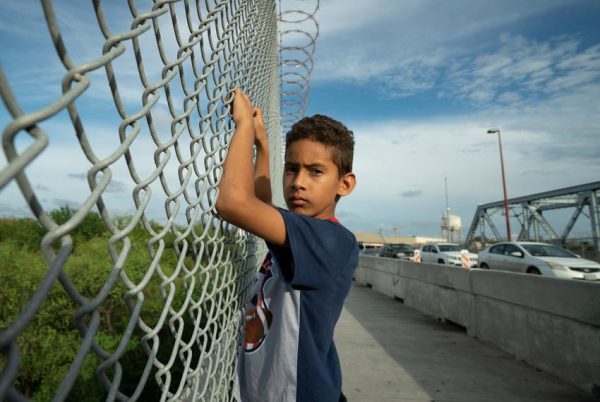Refugee children who have graduated from schools in Greece and have become integrated in society, including some with gainful employment, live in fear of extradition, as their petitions for international protection are often rejected both upon initial examination and on appeal.
Sahzeb Amzand from Pakistan is a child, like Saidou, Sisse, and the siblings Hemin, Doaa, and Rahma.
He lives in fear of extradition on a daily basis since he learned that his appeal of a ruling denying him international protection was dismissed.
Amzand came to Greece at age 14. Today he is 19 years old and is working as an interpreter at Arsis. His petitions have been rejected twice and now he is appealing to administrative courts, though he knows the answer will be negative.
‘I want to live in Greece’
He participated in an online conference organised by the Network for Children’s Rights, which invited 44 organisations that highlighted the legal vacuum that threatens thousands of minors and young refugees in Greece.
“Right now I am in a difficult situation. I have no protection, which is basic for every child and youth in order to live comfortably and to become more integrated into the country,” he said.
Mohammed Al Salman has been residing in Greece since November, 2019. He lives in a refugee facility and has already had two petitions for international protection rejected. He, too, is awaiting the decision of an administrative court.
“They won’t grant me asylum because, as they say, my country is secure and I must go there. My country is not experiencing war, but it has problems. It is not a rich country. It is poor and we do not have money to pursue studies,” he said.
Voultepsi: The legal vacuum must be handled
Deputy Migration Minister Sophia Voultepsi said that the government has “the clear political will” to handle the vacuum in the legal framework with which many unaccompanied minors are confronted when their applications for international protection are rejected.
She made a commitment that the government will have solved the problem by September.
“We are aware of and acknowledge the problem. We have been handling it in a piecemeal fashion and that cannot continue,” Voultepsi said.
“We must find a way to establish a legal status that will apply to all unaccompanied minors and that will be linked in some way with their progress in school and their desire to be integrated,” she noted, adding that by year’s end about 1,000 unaccompanied minors will have reached age of majority (adulthood).



